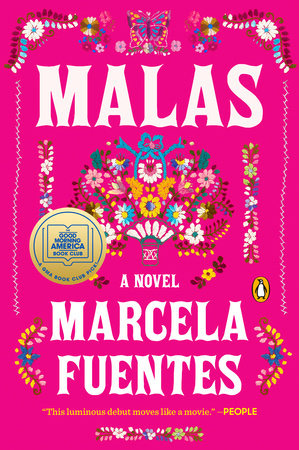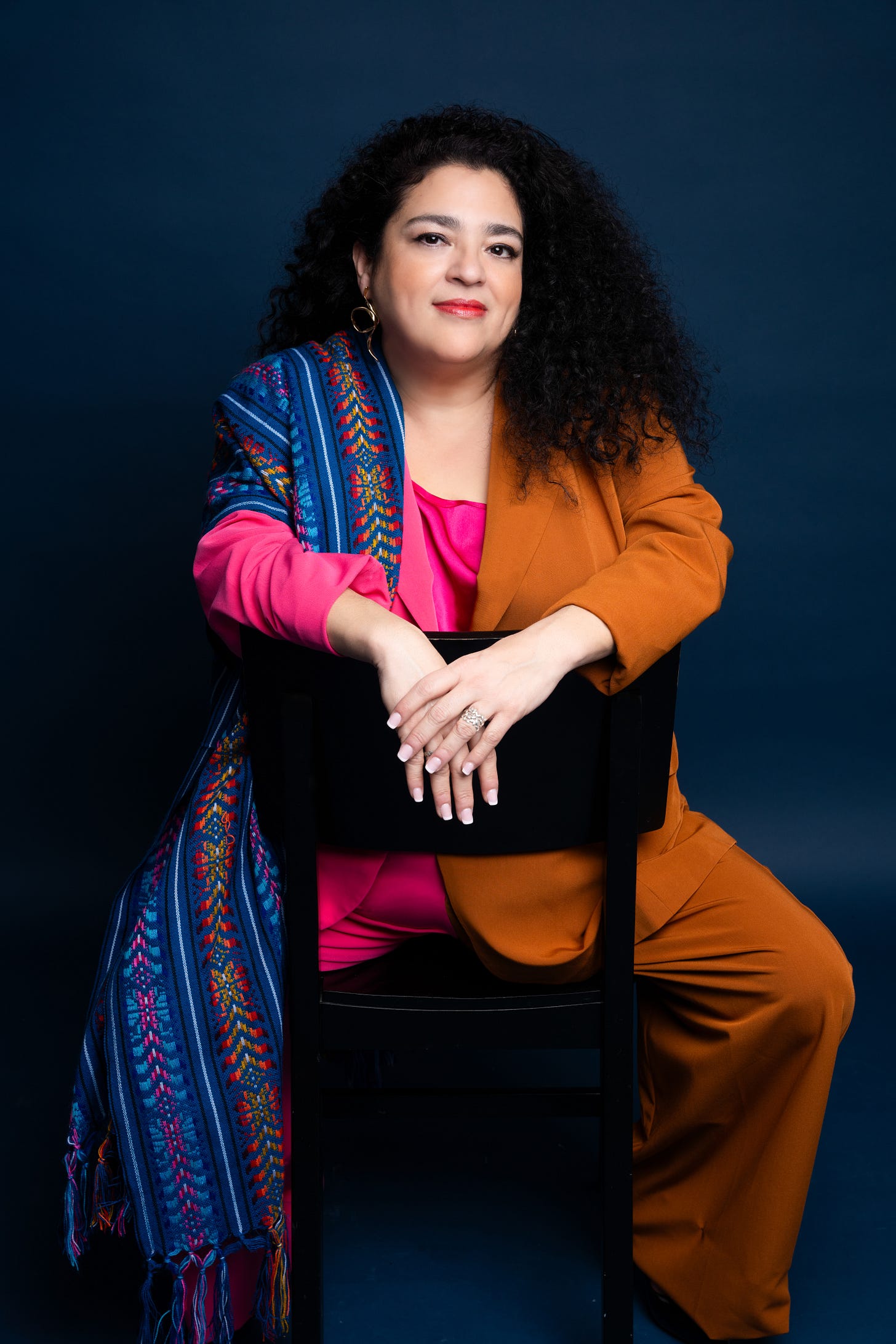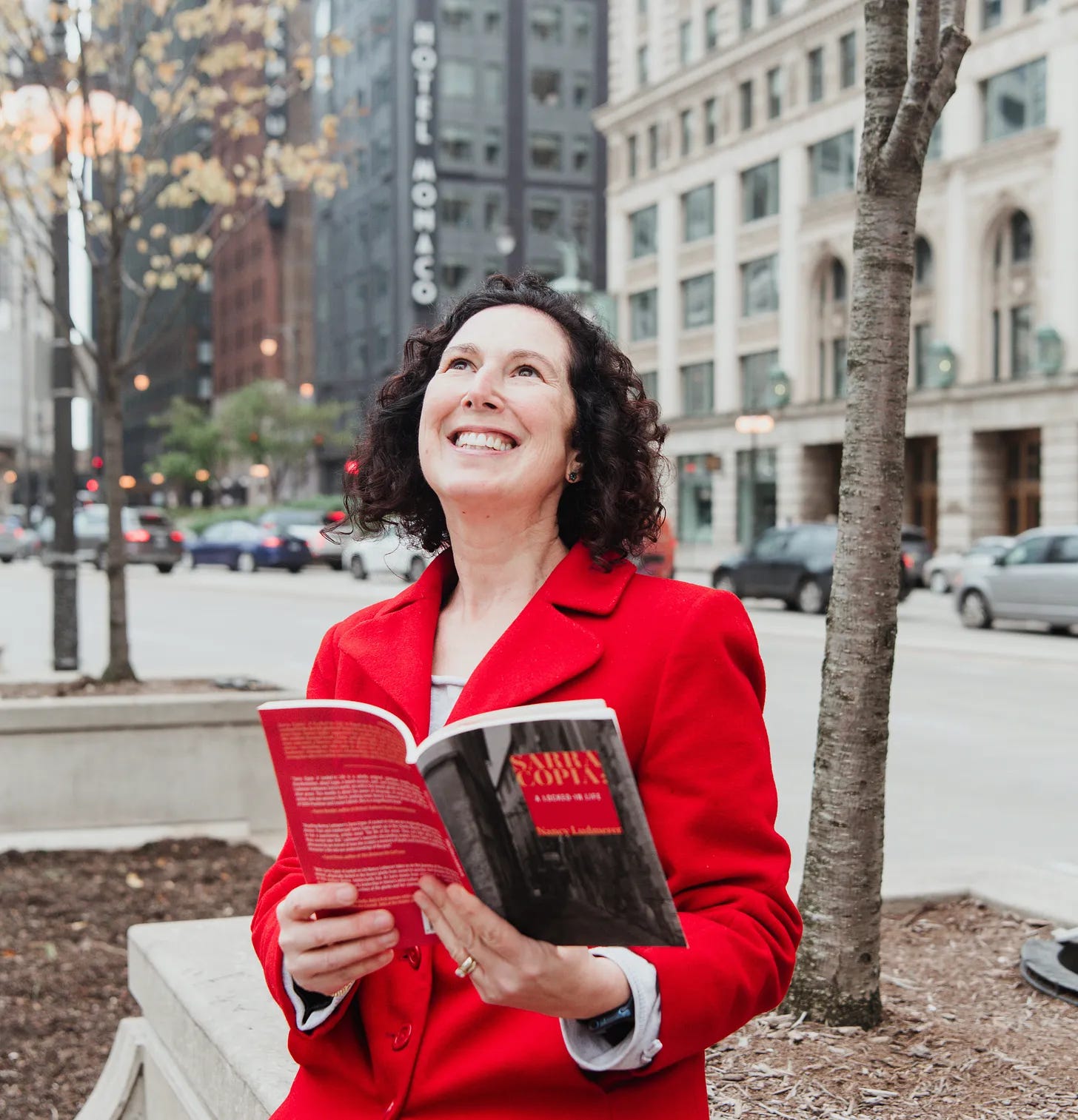The Fortnightly Interview: On Curses and Failed Fairytales
Susan Blumberg-Kason chats with Marcela Fuentes about her debut novel Malas.
Last June, Marcela Fuentes’s debut novel Malas was on a number of best novel lists as well as the Good Morning America Book Club pick for that month. And already this year Fuentes has won several awards, among them the Sergio Troncoso Texas Institute of Letters First Fiction Prize and the 2025 Western Heritage Literary Award. Malas was longlisted for the Center for Fiction First Novel Prize and is the 2025 Southwest Books of the Year Pick and the 2025 Texas Library Association Lariat Book Pick. Malas received starred reviews from Kirkus, Publisher’s Weekly and Booklist, as well as the Washington Post and The New York Times. It was also featured in Elle Magazine, People, and Texas Monthly. Fuentes was born and raised in Del Rio, Texas along the border and has set Malas in the 1950s and 1990s in La Cienega, Texas, also along the border. The paperback of Malas was just published on June 10th.
Susan Blumberg-Kason: I’d like to start with bad girls and curses! The English translation of your title Malas is bad or bad girls, which refers to your two main characters, Pilar and Lulu. They’re not bad, of course, but strong-willed, independent thinkers who don’t conform to the expectations of their communities. How did you come up with the characters of Pilar and Lulu? Were they inspired by people in your life?
Marcela Fuentes: Bad girls/women is a very literal translation, but not quite the sense of “malas” which has an aspect of real wickedness. Unfortunately, “Wicked” was already taken! I definitely wanted to get across the idea of transgressiveness and the lives of women.
Pilar and Lulu are not ripped from my life, but definitely are inspired by strong women of my community. For example, my mom’s best friends, her comadres, were women I looked up to. I wanted to reproduce the kind of allyship I saw between women who were close, had been close, for decades. Pilar is also inspired by the folklore of La Llorona, the weeping woman.
SBK: As for curses, they can be so useful and I love that your story is set around a curse. I feel that curses can help explain maladies for those who are inflicted. And they can provide a sense of justice to those who are upset. Do you think curses are still helpful in our era of social media?
MF: Curses are enduring! Seriously, I think folklore and fairytales are always telling us about social mores and curses are just as good at giving the feeling of some inescapable, oppressive thing—which transcends our social media era. For me, it was a good way to talk about generational trauma.
SBK: Death is almost an immediate result of the curse placed on Pilar. Throughout your book there are many more instances of death. Did this theme of death come to you organically as you wrote Malas or did you know you were going to center your novel around death when you started writing?
MF: No, I didn’t! I’m more of a “figure it out as you go” writer. For me, more than death, the book ended up being about the grief that stays with those who are left behind. It’s a lot about yearning for what was lost.
SBK: Speaking of yearning for people in the past, I love the different eras in your book and how Pilar’s story starts in the 1950s and Lulu’s in the 1990s. How did you decide to set your novel during these two periods?
MF: I wanted to write about Selena and the height of the Tejano music boom, as well as some signature “Gen X” music. I also wanted to touch on pre-civil rights era border life. From there it was more about matching the ages of the characters to the time periods I wanted to write about.
SBK: I love that. And I was wondering what you hoped readers would get from reading about the different identities of the residents along both sides of the border and if your hopes for readers changed from the time you started writing Malas to where we are today?
MF: I don’t know that I hoped for readers to understand anything, so much as I wanted to talk about these identities as real and disparate. There’s a real flattening of the narrative of border life in the greater national consciousness. I wanted to offer an alternate, truer view.
SBK: You’re a graduate of the Iowa Writers’ Workshop. How much of Malas did you work on there and what advice would you give aspiring authors who are thinking of applying to Iowa or other prestigious writing programs?
MF: I wrote the first chapter of Malas at the workshop. I was taking a fairy tale class, and the novel ended up being a failed fairytale. I also wrote a nascent Lulu chapter while I was at Iowa. As far as advice, the only thing I can say is: send your very best work.
SBK: When you were writing Malas, were you inspired by other authors? Which books have influenced you the most as a writer?
MF: Yes, for sure. Everything by Louise Erdrich, but especially her Love Medicine series. I also took a lot of inspiration, structurally speaking, from Rebecca Makkai’s The Great Believers.
SBK: Can you give us a little preview of your next book?
MF: Yes, my second book is a linked story collection, set in Wisconsin and Texas, called My Heart Has More Rooms Than a Whorehouse.
SBK: That sounds fabulous and I cannot wait to read it. Thank you for taking time to answer my questions!




